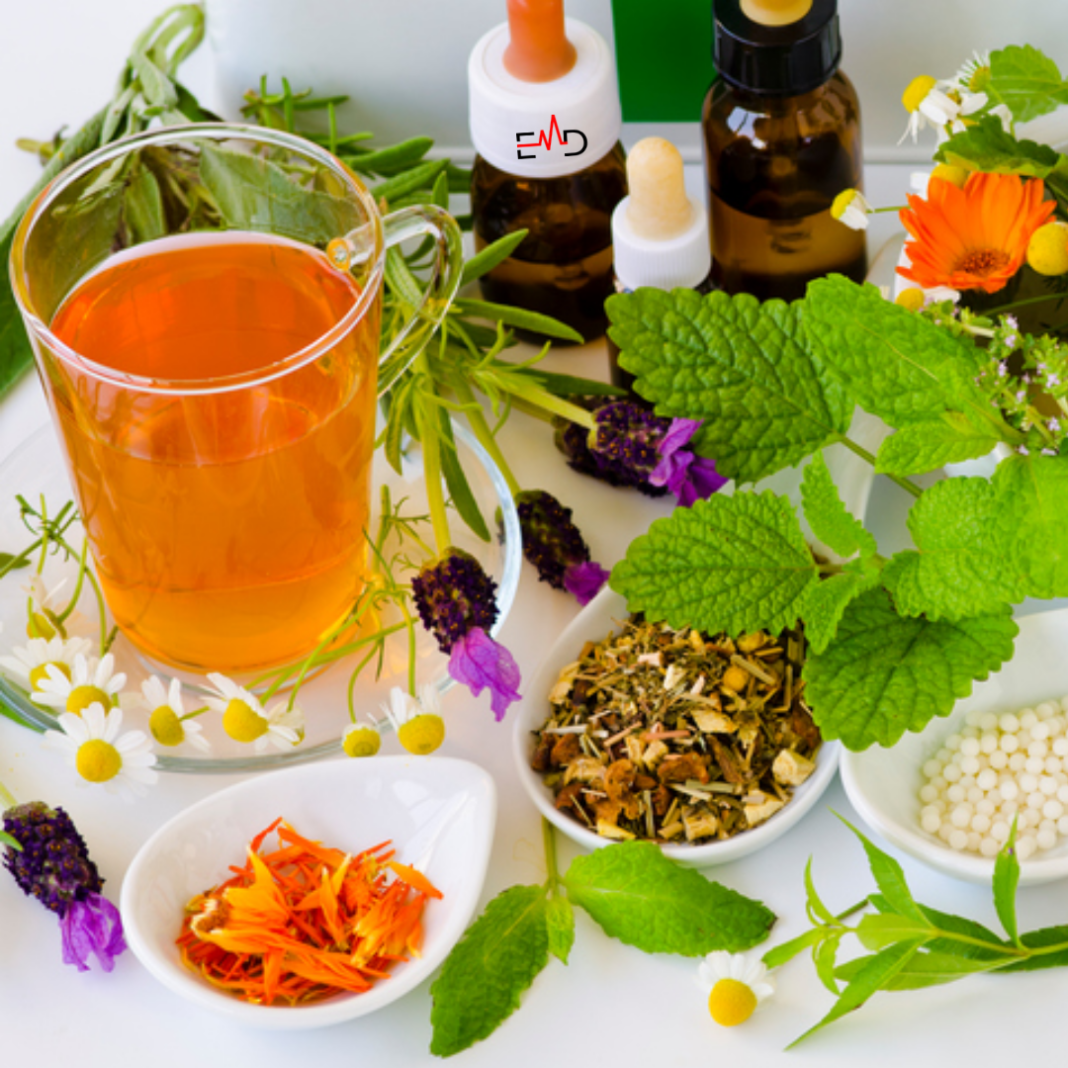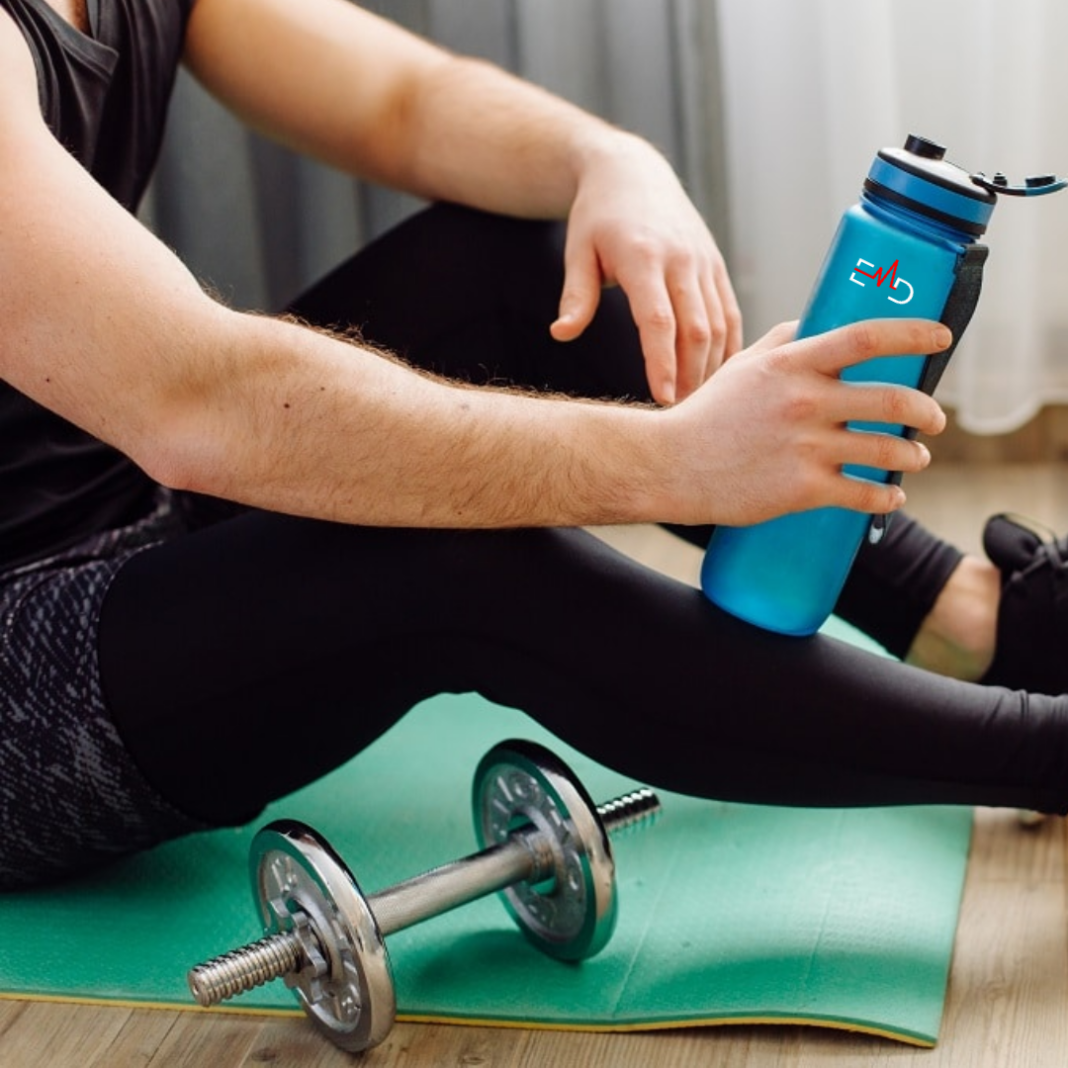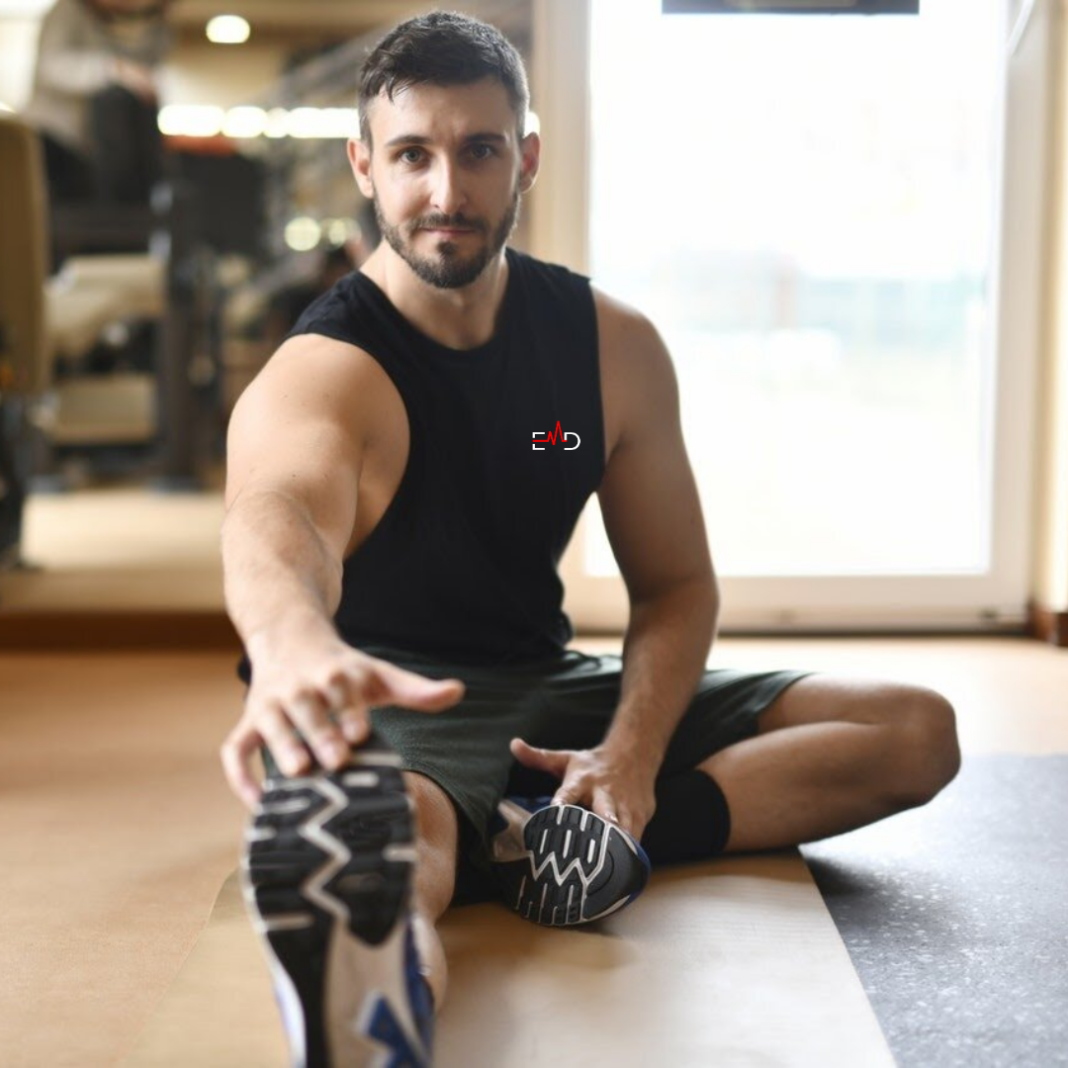Exercise Daily – In our fast-paced world, emergencies can happen when we least expect them. A well-stocked first aid kit can make all the difference, whether it’s a minor scrape, a headache, or a sore throat. While numerous commercial kits are available, creating a natural remedies kit tailored to your needs allows you to take control of your health and well-being. Let’s explore the essential items and herbal remedies you should include in your natural first aid kit, providing you with the knowledge to build a kit that suits your lifestyle and preferences.
An athlete’s natural remedies kit is a holistic approach to maintaining peak performance and overall health. By incorporating these natural remedies into their daily routine, athletes can enhance recovery, reduce inflammation, and support their bodies’ demands. Emphasizing natural solutions ensures long-term health and wellness, allowing athletes to perform at their best without relying heavily on synthetic drugs or treatments.
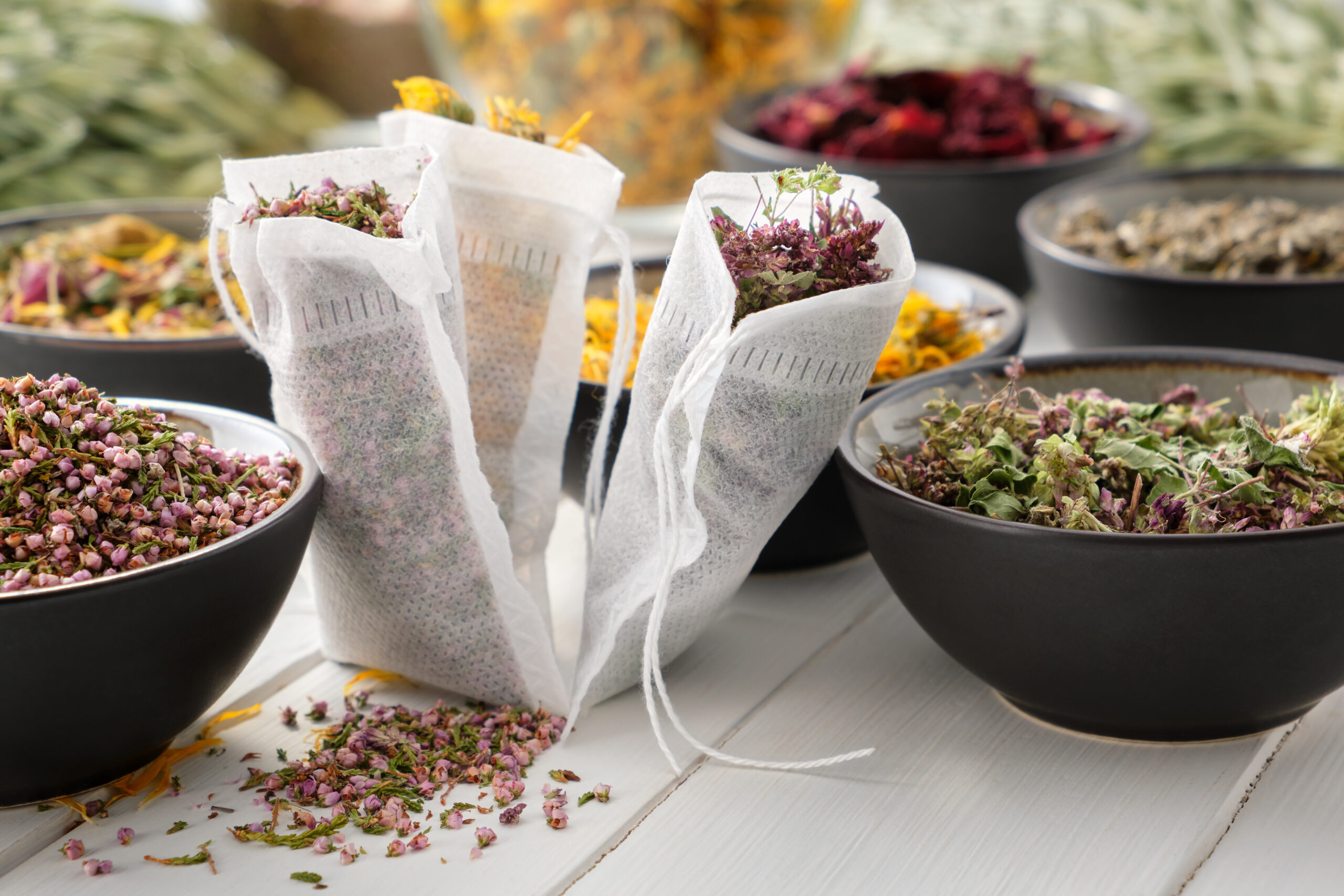
Why You Need a First Aid Kit
The Importance of Being Prepared
Life is unpredictable, and emergencies can occur anywhere, anytime. A readily available first aid kit ensures you are prepared to handle common injuries and ailments that may arise. Whether you’re at home, on a family outing, or enjoying outdoor activities, a well-equipped first aid kit can provide peace of mind and prompt care when needed.
Benefits of Having a First Aid Kit
A properly stocked first aid kit not only allows you to respond promptly to injuries but also helps prevent further complications. By having essential supplies and remedies at hand, you can treat wounds, soothe discomfort, and stop bleeding before professional medical assistance is available. Additionally, having a first aid kit can be particularly useful during emergencies or natural disasters when access to medical facilities may be limited.
Why Choose Natural Remedies?
Natural remedies have been used for centuries to address various health issues. They offer a gentle and holistic approach to healing, often with fewer side effects than conventional medications. By incorporating natural remedies into your first aid kit, you can harness the power of medicinal plants, essential oils, and other natural substances to support your well-being.
Building Your Natural First Aid Kit
Essential Supplies for Your Kit
Before diving into herbal remedies, ensuring your first aid kit is well-stocked with basic supplies is essential. These supplies will help you handle different situations effectively. Here are some essential items to include in your natural first aid kit:
- Bandages, gauze, and adhesive tape for wound dressing
- Scissors and tweezers for wound care and splinter removal
- Antiseptic wipes or solution to clean wounds
- Disposable gloves for hygiene and protection
- Pain relief medication for minor aches and pains
- Thermometer to monitor body temperature
- Instant cold packs for reducing swelling and inflammation
- Safety pins for securing bandages
- Hydrogel or aloe vera gel for soothing burns and sunburns
- Saline solution for eye irrigation
Natural Remedies to Include
In addition to the essential supplies, incorporating herbal remedies into your first aid kit can significantly enhance its effectiveness. Here are some must-have herbal remedies to consider:
Chamomile: The Versatile Herb
Chamomile is a versatile herb renowned for its calming properties. It can be used in various forms, such as tea, tincture, or salve. Chamomile tea can help soothe an upset stomach, relieve anxiety, and promote restful sleep. Its anti-inflammatory properties effectively relieve skin irritations, including bug bites and rashes. Adding chamomile to your first aid kit ensures you have a multipurpose remedy at your disposal.
Echinacea: Boosting Your Immunity
Echinacea is a powerful herb known for its immune-boosting properties. It can help prevent and shorten the duration of common colds and respiratory infections. Echinacea tinctures or capsules are valuable additions to your first aid kit, especially during cold and flu seasons. Including echinacea empowers your body’s natural defenses and supports its ability to fight off infections.
Lavender: The Calming Essential Oil
Lavender essential oil is a popular choice for relaxation and stress relief. Its soothing scent and calming properties make it an excellent addition to your natural first aid kit. Lavender oil can be applied topically to minor burns, cuts, and insect bites to promote healing and reduce pain. Additionally, its aromatic qualities can help alleviate anxiety and promote a sense of tranquility during stressful situations.
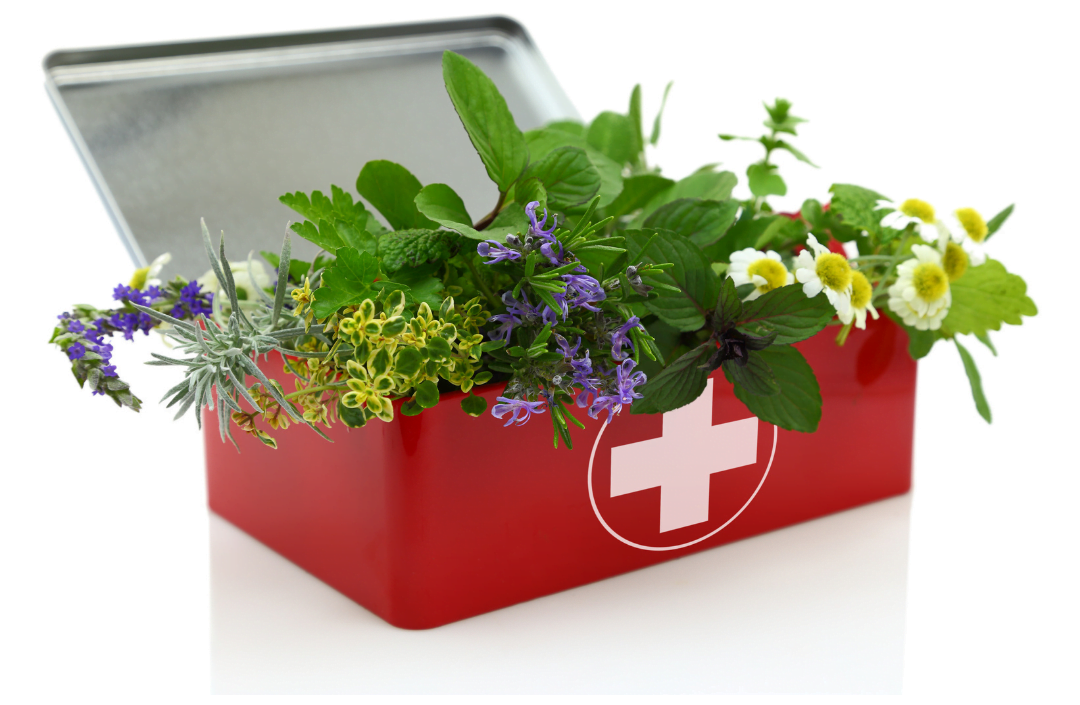
Additional Items to Consider
While the essential supplies and herbal remedies mentioned above form the foundation of your natural first aid kit, there are a few additional items you might want to add based on your specific needs and preferences.
Activated Charcoal: A Natural Detoxifier
Activated charcoal is a potent natural detoxifier that can be used internally or topically. It helps absorb toxins and chemicals, making it useful for treating food poisoning, drug overdoses, and certain types of poisoning. Activated charcoal tablets or powder mixed with water can be administered in case of harmful substances being inhaled.
Yarrow: Nature’s Band-Aid
Yarrow is a medicinal herb with excellent styptic properties, meaning it helps stop bleeding. Its leaves can be crushed and applied directly to wounds to promote blood clotting and accelerate healing. Including dried yarrow leaves in your first aid kit provides you with a natural alternative to conventional bandages for minor cuts and scrapes.
Calendula: Healing Power in a Flower
Calendula, also known as marigold, is known for its anti-inflammatory and wound-healing properties. It can be used topically as infused oil, salve, or cream to soothe skin irritations, minor burns, and cuts. Calendula promotes tissue regeneration and has antimicrobial effects, reducing the chances of infection.
Athletes Natural Remedies Kit for Everyday Use
Athletes constantly push their bodies to the limit, which makes recovery and maintenance essential parts of their routines. A natural remedies kit can be a game-changer for any athlete looking to enhance performance, speed up recovery, and maintain overall well-being. Below is a detailed note on the essential components of an athlete’s natural remedies kit for everyday use.
1. Arnica Gel
Arnica gel is a popular remedy for bruises, muscle soreness, and joint pain. It’s derived from the Arnica montana plant and helps reduce inflammation and speed up healing. Athletes can apply it topically to areas of discomfort after intense workouts or competitions.
An athlete’s herbal first aid kit is a holistic approach to maintaining peak performance and overall health. Incorporating natural remedies into their routine helps enhance recovery, reduce inflammation, and meet the body’s demands. For instance, slippery elm can soothe digestive issues, while moleskin protects against blisters.
2. Epsom Salts
Epsom salts, rich in magnesium sulfate, are excellent for relaxing muscles and relieving pain. Adding Epsom salts to a warm bath can help soothe muscle cramps, reduce inflammation, and detoxify the body, making it an ideal remedy after strenuous activities.
3. Turmeric
Turmeric is renowned for its anti-inflammatory properties, primarily due to its active ingredient, curcumin. Athletes can benefit from turmeric supplements or incorporate it into their diet to reduce muscle soreness and joint inflammation. It’s especially useful for those suffering from chronic pain or overuse injuries.
4. CBD Oil
CBD oil has gained popularity for its anti-inflammatory and pain-relieving properties. Athletes can use CBD oil to manage chronic pain, reduce inflammation, and improve sleep quality. It’s available in various forms, including tinctures, capsules, and topical creams.
5. Omega-3 Supplements
Omega-3 fatty acids, found in fish oil, flaxseeds, and chia seeds, are essential for reducing inflammation and promoting heart health. Athletes can take omega-3 supplements to support joint health, reduce exercise-induced inflammation, and enhance overall recovery.
6. Hydration Solutions
Natural hydration solutions like coconut water and homemade electrolyte drinks are vital for athletes. Coconut water is rich in potassium and other electrolytes that help replenish lost fluids and maintain hydration levels during and after workouts.
7. Aloe Vera
Aloe vera gel treats minor cuts, burns, and skin irritations. Athletes can use it to soothe sunburns, heal abrasions, and moisturize dry skin. Its anti-inflammatory properties also make it useful for reducing muscle soreness.
8. Honey
Honey is a natural energy booster and has antibacterial properties. It can be used as a natural sweetener in drinks and snacks to boost energy during workouts. Additionally, honey can be applied to minor cuts and wounds to promote healing and prevent infections.
9. Chamomile Tea
Chamomile tea is well-known for its calming effects, making it perfect for athletes who need to relax and recover. Drinking chamomile tea before bed can improve sleep quality, which is crucial for muscle recovery and overall performance.
Ensure you’re including items that cater to specific needs, like rescue remedy for stress relief and elderberry for immune support. Emphasizing natural solutions ensures long-term wellness, allowing athletes to perform at their best without over-reliance on synthetic drugs. Make your own herbal kit to suit your lifestyle and preferences, ensuring you’re always prepared for emergencies.
10. Beetroot Juice
Beetroot juice is a natural source of nitrates, which can enhance athletic performance by improving blood flow and oxygen delivery to muscles. Consuming beetroot juice before workouts can increase endurance and reduce fatigue.
11. Magnesium Spray
Magnesium spray is another excellent addition for muscle relaxation and cramp relief. Spraying magnesium oil directly onto the skin allows for quick absorption and can help alleviate muscle tension and soreness.
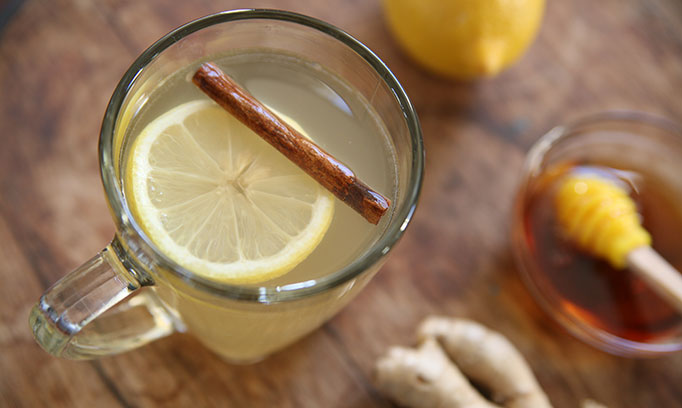
Putting It All Together
Now that you have gathered the essential supplies and herbal remedies, it’s time to effectively organize your natural remedies kit.
Organizing Your Natural Remedies Kit
Consider using a sturdy and portable container with compartments or dividers to ensure easy access and quick identification of items. Clear plastic bags can be used to group similar items together and prevent spills or cross-contamination. Label each item or category for easy identification, especially if you have multiple kits or family members sharing the same kit.
Safety Precautions and Storage Tips
When using herbal remedies, it’s important to be aware of potential allergies, sensitivities, or contraindications. Consult a qualified herbalist or healthcare professional if you are unsure about using a specific remedy. Additionally, store your natural remedies kit in a cool, dry place away from direct sunlight to maintain the potency and effectiveness of the herbal products.
Regularly Checking and Replenishing Your Kit
Remember to regularly check the expiration dates of medications and herbal products in your kit. Replace any expired items promptly and restock any supplies that have been used. It’s also a good practice to review and update your first aid kit annually or as needed to ensure it remains up to date and suits your current needs.
FAQs – Creating a Natural Remedies Kit for Everyday Use
Q: What items should I include in my natural first aid kit?
A: Your natural first aid kit should include essential supplies such as bandages, antiseptic wipes, pain relief medication, and crucial herbal remedies like chamomile, echinacea, and lavender.
Q: Can I use natural remedies for serious medical emergencies?
A: While natural remedies can relieve minor injuries and ailments, seeking professional medical help for serious emergencies is important. Natural remedies can complement primary care but should not substitute urgent medical attention.
Q: Where can I find the herbal remedies mentioned in the article?
A: Herbal remedies can be found in health food stores, herbalist shops, or online retailers specializing in natural products. Ensure you purchase from reputable sources and check the quality and authenticity of the products.
Q: Can I customize my natural first aid kit based on my health needs?
A: Absolutely! Customizing your natural first aid kit allows you to address your unique health concerns. Consult with a herbalist or healthcare professional for personalized advice and recommendations.
Q: How often should I update my first aid kit?
A: It’s recommended to review and update your first aid kit annually or whenever there are changes in your family’s health needs. Regularly check for expired items and replenish supplies as necessary to ensure your kit is always ready for use.
Conclusions
In our fast-paced world, emergencies can happen when we least expect them. Having a well-stocked first aid kit can make all the difference, whether it’s a minor scrape, a headache, or a sore throat. While numerous commercial kits are available, creating an herbal first aid kit tailored to your needs allows you to take control of your health and well-being. Make sure your emergency kit includes essential items and herbal remedies.

